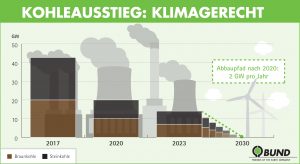
Making life in the neighbourhood more ecologically, socially, economically and culturally sustainable together with the residents; that is the aim of "Real-world laboratory 131: KIT finds the city" at the Karlsruhe Institute of Technology (KIT). In Karlsruhe's Oststadt district, researchers in this laboratory are looking for ways to reduce CO2 emissions, conserve resources, strengthen neighbourhoods and improve the health of people in the district. The project has now been honoured twice by the German Council for Sustainable Development (RNE).
"The special thing about this project is that we work directly with the people living and working on the ground at eye level and can therefore not only incorporate specific local knowledge and think ahead. Rather, this makes it possible to take action for sustainable development," says Alexandra Quint from the project team at the Institute for Technology Assessment and Systems Analysis (ITAS). Ways to make neighbourhoods more pedestrian-friendly are being researched, as are new methods for energy-efficient building refurbishment, and services for sustainable living and sustainable mobility behaviour are being developed. The researchers' work is highly interdisciplinary: "Architects, philosophers, landscape planners, cultural scientists, environmental scientists and geoecologists work together in this team," says the urban geographer.
This is not just research, but also very practical work: "For example, there is a newly developed energy concept for increasing the proportion of renewable energies in existing buildings or initiatives for slowing down our increasingly hectic everyday lives," reports Dr Oliver Parodi, Head of Reallabor 131. In the "Beds and Bees" project, citizens and scientists have jointly designed a snack bed with herbs, fruit and vegetables in public spaces and set up a hive as a home for bees. Quint explains that this not only serves to raise environmental and nutritional awareness, but above all to build community. All of this is done in co-operation with civil society groups, the city administration, associations, businesses and, above all, the local citizens who regularly take part.
A series of events also provides approaches and ideas for alternative consumer behaviour. Parodi mentions plant swaps, clothes swap parties and a regular repair café. "Reallabor 131 is designed as a platform for participation and has a strong networking character." The project's own "Future Space for Sustainability and Science", a former shop, combines the characteristics of a neighbourhood office, a science shop and a community centre and is now a popular meeting point, event and educational venue.
According to Quint, the concept is attracting worldwide interest: "The laboratory is a model, is designed to be transferable and has so far been researched by scientists from the Netherlands, Spain and Australia, with requests for cooperation coming from Mexico, Russia, Switzerland, the USA, Estonia, Portugal and Spain."
Honoured as a transformation project
The German Council for Sustainable Development (RNE), which advises the German government on sustainability issues, has now honoured the Reallabor twice: with the "Project Sustainability 2017" seal of quality and as one of four "transformation projects" nationwide. With this seal, the RNE recognises initiatives from society that make a special contribution to sustainable development in Germany and the world. Around 240 projects applied for the award. According to the jury, the transformation projects honoured have particularly great potential to make the world more sustainable. The awards were presented at the end of May at the RNE's annual conference in Berlin.
The website provides information on all the activities of the real-world laboratory: www.quartierzukunft.de
Photo of the award ceremony under:
www.tatenfuermorgen.de/galerien/jahreskonferenz
Source: Press release 076/2017 from 09/06/2017
Keywords: Stock, News Blog Baden-Württemberg, Quarters, Contests & Prizes


